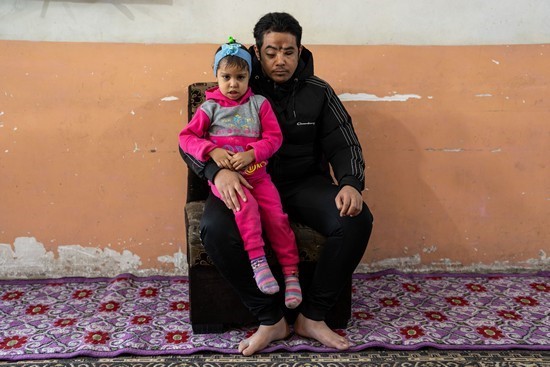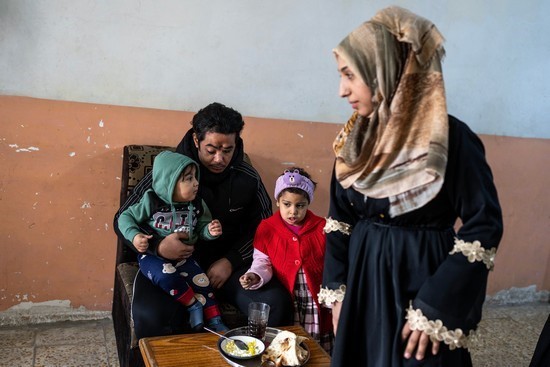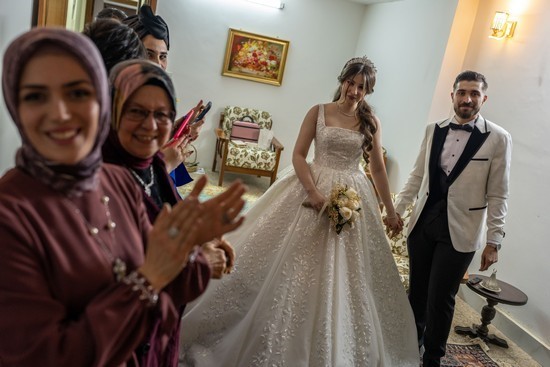BAGHDAD — The thump of a car-bomb
explosion, then a whoosh of flame interrupting homework; the low boom of a
roadside bomb and seconds later the shattering of glass jolting families awake;
an apartment door being kicked open in the middle of the night and someone
shouting in a foreign language; the pop, pop, pop of bullets whizzing past in a
firefight and the bang of doors slamming as grown-ups drag children inside.
اضافة اعلان
For six years, during the war launched by
the US in 2003 and the sectarian conflict it gave birth to, this was the
soundtrack of life in Iraq, and especially for those younger than 26 — about 23
million people, nearly half of the population. Trauma was a daily event. Losses
touched nearly every family.
Now, especially in Baghdad, many young
people want to move on. The cities have somewhat recovered from the war years,
and more affluent young Iraqis frequent coffee shops, go to malls, and attend
live concerts. Even so, most conversations keep circling back to a relative who
was killed, family members who were displaced, or lingering doubts about Iraq’s
future.
Wars leave scars even when people survive with their bodies intact. The metallic whirring of helicopters, the flash of flares, the smell of burning after bombs, the taste of fear, the ache of something lost — all of these linger long after the fighting stops.
Wars leave scars even when people survive
with their bodies intact. The metallic whirring of helicopters, the flash of
flares, the smell of burning after bombs, the taste of fear, the ache of
something lost — all of these linger long after the fighting stops.
“The war took away our childhood,” said
Noor Nabih, 26, whose mother was wounded in crossfire from a passing US convoy
and then seriously injured again in a bomb blast.
Joao Silva, a New York Times photographer,
and Alissa J. Rubin, a senior correspondent, recently talked to young Iraqis in
Baghdad about their lives, their thoughts on the US invasion, and the state of
their country. Here are some of their stories.
 Mohammed Hassan Jawad Jassim, who was blinded during
protests in 2019, with his daughter in Baghdad on February 12, 2023.
Mohammed Hassan Jawad Jassim, who was blinded during
protests in 2019, with his daughter in Baghdad on February 12, 2023.
‘I was so scared I lay down on the
ground.’
Mohammed Hassan Jawad Jassim, 25
Mohammed was five at the time of the
invasion. Every explosion startled him. The first time he saw a US vehicle hit
a roadside bomb, he said, the blast vibrated through him; then came a barrage
of bullets.
“I was so scared I lay down on the ground
and pressed my face into the road,” he recalled.
Before long, the US soldiers began to knock
at the family’s door in search of Shiite Muslim militia members loyal to the
anti-American cleric Muqtada Al-Sadr. “I was afraid they were going to shoot,”
he said.
With 17 sisters and brothers, and a father
who could barely piece together a living working in a garage, Mohammed could
not focus at school, and dropped out after second grade. “I had thoughts of
death,” he said. “Sometimes, I tied a blindfold around my eyes and sat in a
dark room.”
“My only wish is that I could have my eyesight so that I could see my children,” he said. “Adam came into the world after I was hit, so I have never seen him.”
When he was 21, his daughter, Tabarak, was
born and he wanted to get a government job but had no connections to
politicians who could help him. Indignant, he joined the 2019 youth protests
over government corruption and the Iranian presence in Iraq, known in the Arab
world as the October Revolution.
On his first day at the protests, a
tear-gas canister exploded in his face, pulling one eye out its socket and
damaging the other. His world went dark.
Now his daughter is four; he also has a
one-year old son, Adam.
“My only wish is that I could have my
eyesight so that I could see my children,” he said. “Adam came into the world
after I was hit, so I have never seen him.”
‘It was all beautiful until Hussain was
shot.’
Dalia Mazin Sedeeq Al-Hatim, 24, and Hussain
Sarmad Kadhim Al-Bayati, 26
Dalia, 24, and Hussain, 26, met at the
hospital where they were both pharmacists. It took Hussain just a month to know
he wanted to marry Dalia and for Dalia to feel the same about Hussain.
 Mohammed Hassan Jawad Jassim, who was blinded during
protests in 2019, with his wife and children in Baghdad on February 12, 2023.
Mohammed Hassan Jawad Jassim, who was blinded during
protests in 2019, with his wife and children in Baghdad on February 12, 2023.
They had much in common. Both were from
families that prized education; both had grown up with the sounds of war. Dalia
remembered watching the Nickelodeon cartoon channel when bombs began to fall on
Baghdad; Hussain remembered windows being blown out from a bomb blast.
And both their families fled to Syria when
the war came too close to home. Dalia’s school bus driver disappeared during
the sectarian fighting and was later found dead, and the same happened to
Hussain’s brother’s school bus driver.
Their one difference — Dalia is a Sunni
Muslim and Hussain is a Shia Muslim — did not matter to them, although they
knew it might to others. “Even if our sect could be an obstacle, we agreed that
it wouldn’t be,” Hussain said.
“On the day I proposed to Dalia, my father
insisted that I tell Dalia’s family that I am a Shia so it is clear and Dalia’s
family won’t be surprised someday,” he said. “They said: ‘We do not care what
sect you are. We care that you love our daughter and she loves you.’”
Even before their February 18 wedding day,
the violence that is part of daily life touched them. Hussain was stabbed and
shot during a robbery while working the night shift at a pharmacy.
“It was all beautiful until Hussain was
shot and now we were once again reminded of the reality of Baghdad,” Dalia said.
They hope now, Hussain said, “for health
and safety.”
 Dalia Mazin Sedeeq Al-Hatim and Hussain Sarmad Kadhim
Al-Bayati at their wedding reception in Baghdad on February 18, 2023.
Dalia Mazin Sedeeq Al-Hatim and Hussain Sarmad Kadhim
Al-Bayati at their wedding reception in Baghdad on February 18, 2023.
‘To make my father be proud of me in the
hereafter.’
Hamza Amer Chamis, 24
Hamza, 24, grew up with the military in his
blood. His father had been a colonel when Saddam Hussein was in power, and
rejoined the Iraqi army, which the Americans initially dissolved, after it was
reconstituted. He bonded with the US soldiers he worked with, rising to the
rank of general.
“My dream, my passion for becoming an
officer, started at the age of 12,” Hamza recalled. “Our school had a costume
party, and my father gave me his uniform with his rank and colors to wear. It
was a great thing, and the next day, I told him, ‘I want to become like you.’”
“It was all beautiful until Hussain was shot and now we were once again reminded of the reality of Baghdad,” Dalia said. They hope now, Hussain said, “for health and safety.”
But the family was seen as traitors by some
of his father’s former army colleagues who had joined the insurgents fighting
the US military. One group of militants tried to kidnap Hamza’s older brother.
Then, in 2014, Hamza’s father was killed as he was fighting in Anbar against
the country’s newest scourge, the Daesh group.
From then on, he said, he wanted “to make
my father be proud of me in the hereafter and feel that I did something for
him, just as he raised and supported me”.
Hamza graduated at the top of his class in
military college and became the youngest lieutenant in the history of the
post-2003 Iraqi army. His first mission: to fight the remnants of Daesh, the
same militants who killed his father.
Now, he is an officer in charge of security
for the Joint Command, which includes the senior staff of the Iraq armed
forces. His dream is to reach the same rank as his father.



